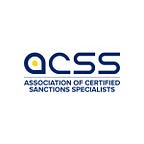How Does OFAC Develop Sanctions Programs?
The Office of Foreign Assets Control (OFAC) is an agency within the U.S. Department of the Treasury that combats financial crime. As part of its mandate, OFAC develops sanctions programs — regulations and guidance to help businesses comply with U.S. sanctions laws. In this article, we’ll take a closer look at how OFAC goes about developing these programs and what role data plays in their development.
The Office of Foreign Assets Control (OFAC) is a division of the U.S. Treasury that administers and enforces economic sanctions against foreign countries and organizations. Sanctions programs can be complex, involving a variety of regulations and procedures. In order to ensure the accuracy and consistency of OFAC sanctions programs, the division employs a number of professionals, including lawyers, economists, specialists in financial crime detection and analysis, and information technology experts.
OFAC’s Process for Identifying and Targeting Persons and Entities
OFAC Sanctions Programs are designed to punish individuals and entities that have engaged in hostile actions against the United States or its allies. To identify potential targets, OFAC relies on a variety of sources, including intelligence reports, open-source information, and information provided by foreign governments and other international organizations.
Once a target is identified, OFAC develops a sanctions program that is tailored to the specific threat posed by the individual or entity. The program may include economic sanctions, travel restrictions, and arms embargoes. In some cases, OFAC may also designate the target as a terrorist supporter or sponsor.
OFAC’s Policy Framework for Sanctions Programs
The economic sanctions program is the largest and most comprehensive of OFAC’s sanctions programs. It includes restrictions on foreign financial institutions and their dealings with U.S. persons and entities. The political sanctions program restricts U.S. relations with designated countries and their citizens. The military sanctions program targets governments that support terrorism or are hostile to the United States. The cultural sanctions program prohibits Americans from traveling to designated countries.
OFAC updates its policy framework annually in order to reflect changes in international affairs and compliance with federal laws and regulations governing sanctions programs. Recent changes to the policy framework include revisions to the definition of terrorism, adjustments to the list of sanctioned countries, and increased enforcement efforts against violators of U.S. sanctions laws.
Implementation of Sanctions Programs
The Office of Foreign Assets Control (OFAC) implements U.S. sanctions programs to target individuals, entities, and countries that violate international law or threaten the national security of the United States. To carry out these programs effectively, OFAC relies on a network of specialists who provide expertise in a variety of areas, including economics, finance, counterterrorism, arms control, and energy.
OFAC’s sanctions programs are designed to achieve specific objectives and must be tailored to meet the unique needs of each target country and situation. In general, OFAC aims to disrupt financial transactions that support sanctioned activities or further proliferation of weapons of mass destruction and their delivery systems; limit access to U.S. financial markets for designated entities and individuals; and restrict trade with designated countries that fail to meet human rights or other standards.
